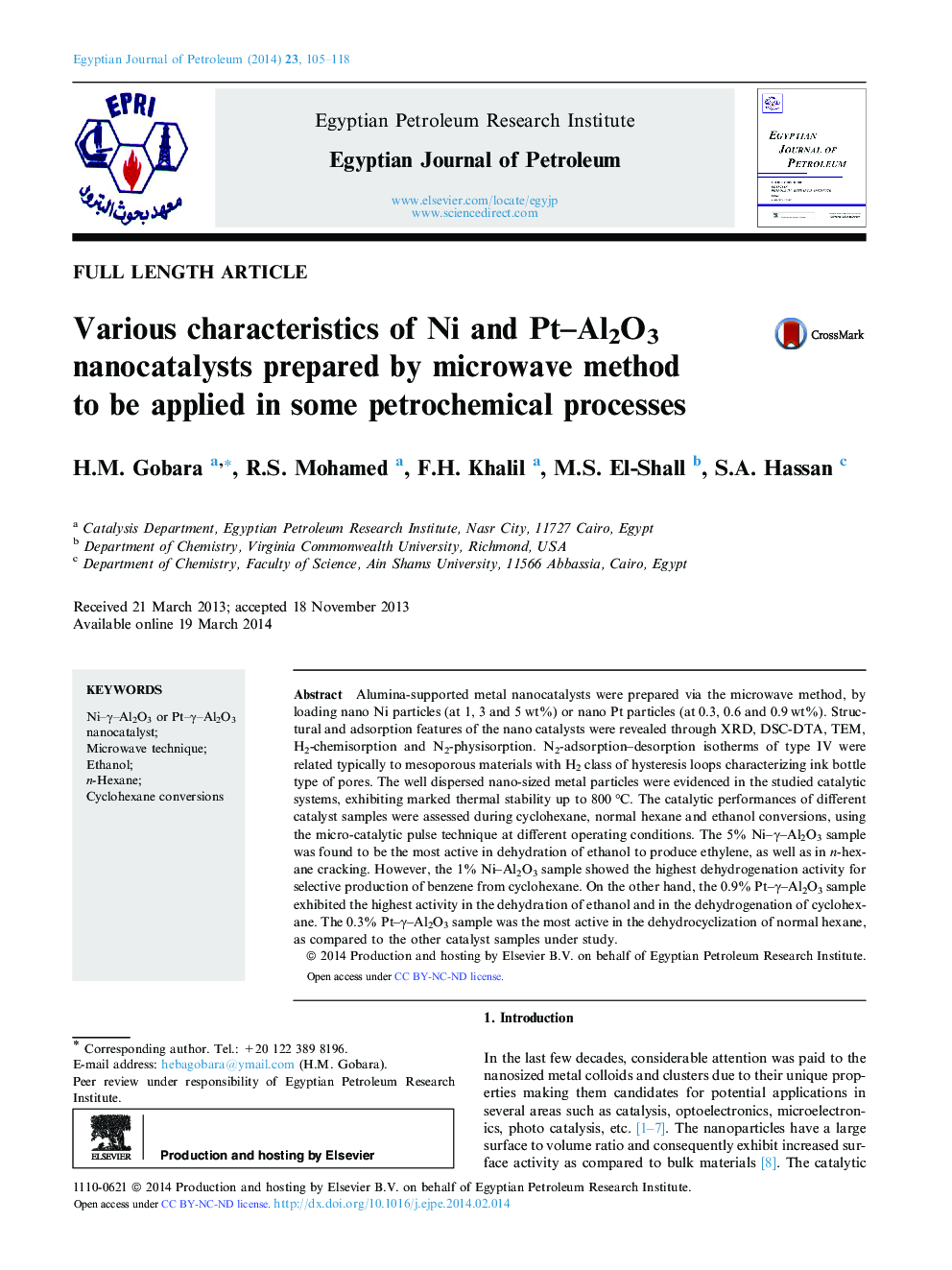| Article ID | Journal | Published Year | Pages | File Type |
|---|---|---|---|---|
| 1756898 | Egyptian Journal of Petroleum | 2014 | 14 Pages |
Abstract
Alumina-supported metal nanocatalysts were prepared via the microwave method, by loading nano Ni particles (at 1, 3 and 5 wt%) or nano Pt particles (at 0.3, 0.6 and 0.9 wt%). Structural and adsorption features of the nano catalysts were revealed through XRD, DSC-DTA, TEM, H2-chemisorption and N2-physisorption. N2-adsorption-desorption isotherms of type IV were related typically to mesoporous materials with H2 class of hysteresis loops characterizing ink bottle type of pores. The well dispersed nano-sized metal particles were evidenced in the studied catalytic systems, exhibiting marked thermal stability up to 800 °C. The catalytic performances of different catalyst samples were assessed during cyclohexane, normal hexane and ethanol conversions, using the micro-catalytic pulse technique at different operating conditions. The 5% Ni-γ-Al2O3 sample was found to be the most active in dehydration of ethanol to produce ethylene, as well as in n-hexane cracking. However, the 1% Ni-Al2O3 sample showed the highest dehydrogenation activity for selective production of benzene from cyclohexane. On the other hand, the 0.9% Pt-γ-Al2O3 sample exhibited the highest activity in the dehydration of ethanol and in the dehydrogenation of cyclohexane. The 0.3% Pt-γ-Al2O3 sample was the most active in the dehydrocyclization of normal hexane, as compared to the other catalyst samples under study.
Keywords
Related Topics
Physical Sciences and Engineering
Energy
Energy (General)
Authors
H.M. Gobara, R.S. Mohamed, F.H. Khalil, M.S. El-Shall, S.A. Hassan,
